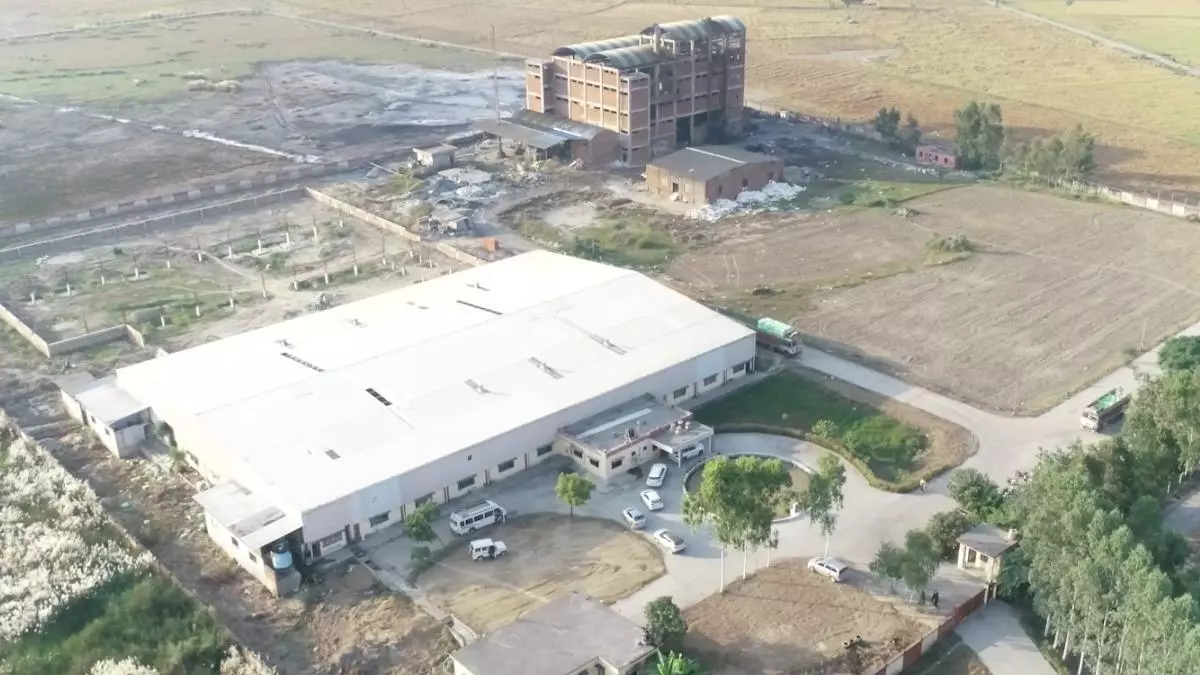Millions of poor and hungry Nigerians are increasingly relying on handouts from friends, family, private organisations, religious institutions, and philanthropists during the festive season as governments at various levels fail to quell hunger.
With soaring inflation and cost-of-living crisis, these initiatives have become a vital lifeline, even as they expose the nation’s deepening poverty crisis.
Traditionally marked by abundance and celebration, this year’s Yuletide season has taken a grim turn for many families. With Nigeria’s poverty rate soaring to an estimated 38.9 percent in 2023 and over 87 million citizens living below the poverty line, millions are struggling to secure basic necessities, according to the World Bank data.
For 71-years-old Gabriel Ishaku, who lives in Otukpo, Benue State, the food from his local church is his only solace and source of sustenance this period. “I am so grateful. I don’t know what I would have done without this help. We need more than handouts; we need hope,” Ishaku stated.
Read also: Obi to IGP: Restrictions on palliatives distribution will discourage charity
The United Nations predicts that by 2030, 82 million Nigerians could face hunger unless the government addresses key issues such as climate change and agricultural productivity.
Recent data from the National Bureau of Statistics (NBS) highlights the worsening crisis. In November 2024, Nigeria’s inflation rate climbed to 34.6 percent, with the cost of staple foods like rice and yam skyrocketing, further eroding the purchasing power of citizens.
In the face of government shortcomings, private initiatives have taken a centre stage. From churches organising food distribution events to philanthropists launching national food intervention programmes, the generosity of private citizens and organisations is providing the much-needed relief.
Churches to the Rescue
Religious groups, such as a Christian organization distributing meals at Christmas 2024 event, have focused their messages on sharing love and hope with vulnerable populations.
“This Christmas, let’s share the true spirit of the season: love, joy, and the Good News of the birth of Jesus Christ.
“Join us as we bring smiles to faces and hearts to the table. Come and help spread the warmth of Christ’s love to someone in need. Let’s make this Christmas unforgettable for someone. Your generosity can be the miracle they’re praying for.”
Similarly, Jamuz Community Outreach recently distributed food in Kuchingoro, Abuja, fostering a sense of togetherness and relief among beneficiaries.
“The event wasn’t just about food, it was about connection, love, and giving back. We prayed together, laughed together, and celebrated the spirit of togetherness. Seeing the smiles on the faces of the beneficiaries reminded us of why we do this: to make a difference. The demand this year has been overwhelming, but the smiles and gratitude we see make it worth the effort.”
Read also: I have been giving out palliatives in Bourdillon for the last 25 years, no stampede – Tinubu
Private Organisations Follow Suit
The Aliko Dangote Foundation has also launched an ambitious initiative to distribute over one million 10kg bags of rice across Nigeria’s 774 local government areas. This programme aims to alleviate hunger while promoting dignity and equity in the distribution process.
Experts have criticised the government’s approach to poverty alleviation, describing them as key drivers of the rising hardship, poverty, and social instability plaguing the nation.
Government Policies
Eze Onyekpere of the Centre for Social Justice has faulted the government’s economic policies such as the removal of fuel subsidies and the floating of the naira, noting that they have exacerbated poverty and hardship.
He urged the government to address the root causes of poverty.
“The recent loss of lives in stampedes during food distribution underscores the depth of the hunger crisis in Nigeria,” he said,
While private initiatives provide temporary relief, Onyekpere argues that they are not a substitute for sustainable government action. He emphasised the need for long-term strategies to improve agricultural productivity, empower small businesses, and create robust safety nets.
Mary Ikoku, a philanthropist, condemned the chaotic nature of the government-led palliatives distribution, describing it as undignified and inequitable. “How do you pack one million people into a small space and expect them to collect rice that is not more than two mundus? Even if you are giving people palliatives, they deserve dignity,” she said.
She emphasised that Nigeria possesses sufficient resources to care for its citizens without relying heavily on external aid. According to her, if the nation’s wealth is properly managed, vulnerable populations would not have to suffer to access relief.
“It is their sovereign wealth. It is what God has given this country. We have no business waiting for external aid to address domestic challenges,” she asserted.
Ikoku called on authorities to adopt a more transparent, humane, and efficient approach to aid distribution. She emphasised the need for policies that ensure that relief reaches those mostly in need while preserving their dignity and well-being.
“The government must prioritise the people, not just in words but in action. Aid distribution should be a structured process, free from exploitation and political manipulation,” she added.
They urged the government to prioritise transparency, reduce corruption, and implement reforms to alleviate hardship.
For many Nigerians, the palliatives are a bittersweet reminder of their struggles. Rhoda Aduke, a single mother of three, expressed gratitude for a bag of provisions from a church, saying it would sustain her family through the holidays.
Speaking with BusinessDay, Abba Gabriel, an Abuja resident, lamented the dire economic situation that has left many struggling to make ends meet. “This palliative of a thing is worrying. Before now, there was nothing like palliatives because many Nigerians were living well,” he said, referencing a time when workers and market women could thrive without government handouts.
He blamed the fuel subsidy removal and skyrocketing fuel prices for exacerbating the hardship.
“We used to buy fuel at N15 per litre. Now, it’s over N1,000 per litre. How can a farmer transport his goods to the market under these conditions?” he asked. He explained that this situation drives people to desperate measures, including stampedes at palliative distribution centres.
He insisted that systemic changes are necessary to prevent future crises.
Another Nigerian, Prince Oluwafemi, highlighted the tragic consequences of the current state of affairs, recalling a recent incident in Ibadan where a stampede at a palliative distribution site resulted in the loss of lives, especially children. “People want food and will go to any length to get it. The hunger is unbearable,” he said.
Both men expressed concerns about the lack of transparency in government programmes, with Oluwafemi questioning whether funds allocated for palliatives ever reach the intended beneficiaries. “Maybe the people in charge are pocketing the money,” he suggested.








Leave a Comment